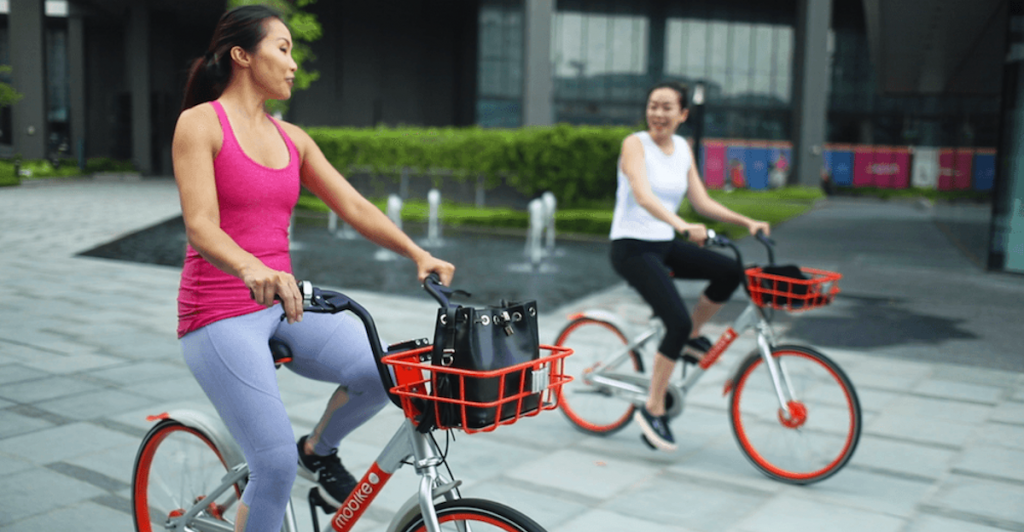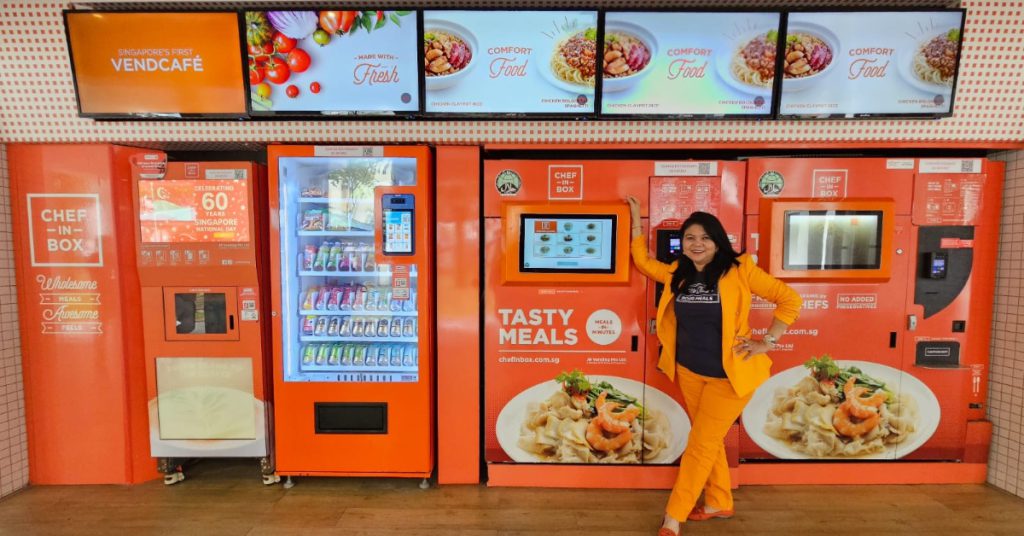With the rise of the sharing economy, Singapore is also starting to see a trend of bike-sharing services.
On Tuesday (March 21), Beijing-based company Mobike launched its bike-sharing service in Singapore, marking the firm’s first overseas expansion.
It now joins two other similar providers – local startup oBike and fellow Chinese firm Ofo – both of whom are currently operating in Singapore.
Mobike will initially be deployed at selected high demand areas around the city such as MRT stations, industrial parks, and universities such as National University of Singapore (NUS), Singapore Management University (SMU), and Republic Polytechnic, according to the company.

The startup is also eyeing residential areas like Pasir Ris and Tampines “where workers and students will be travelling between their homes and nearby subway stations or bus stations,” Mobike said.
Other possible deployment areas include Woodlands and Punggol, where access to MRT and feeder bus networks are more limited, and cycling can provide an immediate solution.
Three’s A Crowd
All three providers utilise mobile apps that allow users to book bikes on their smartphones and unlock the wheels with a QR code – but what sets Mobike apart from the rest of its competitors are its smart bikes.

Their bicycles are equipped with airless tires, a solar-panelled basket, a proprietary smart-lock technology, and a GPS tracker.
This GPS technology will help Mobike track down bikes that have been inappropriately returned, or rogue users who try to make away with the bikes. The app is also fitted with a mapping function that’ll help users locate available bikes nearby, so you won’t have to waste time hunting one down.
To return the bikes, users simply need to drop them off at any bicycle-parking area, such as at void decks and MRT stations, and manually lock it. And when you first rent a Mobike, there’s a one-time refundable deposit of $49, after which it will cost $1 for every half-hour.
However, Mobike is currently running a promotional rental rate of S$0.50 for every 30 minutes – which is half the usual rental rate.
Users can make payment via debit or credit card in-app, but the firm said that it is working with other companies like SMRT and NETS to accept other payment methods.
Collaborations Are Key
In its global expansion, Mobike said that it has been very cautious about complying with the local regulations.
“Mobike plans to work closely with a number of partners in Singapore to identify ‘Mobike Preferred Locations’, areas of high convenience around the city where users can start and end their cycling trip, in addition to existing authorised bicycle parking zones,” the firm said in a media statement.
It added that Mobike will also work with its partners on activities to educate users on good cycling habits, and where to park bikes.
“We are determined to commit time up-front to really understand how each city operates and how Mobike can help. Singapore’s government has been very proactive to support cycling as a viable last-mile transport solution, from the “Walk, Cycle, Ride” scheme to the Park Connector Network,” said Davis Wang, co-founder and CEO of Mobike.
Mobike has attracted big name investors including Tencent, Foxconn, and Temasek Holdings, raising more than $300 million in their latest funding round earlier this year.
The company already has one million bikes deployed across 33 Chinese cities, and according to Trustdata, it took 72.5 percent of market share on the mainland in 2016.
National Bike-Sharing Scheme
Mobike has been identified as one of the 13 firms in the running for the national bike-sharing scheme in December, which calls for more than 200 bike docking stations around the island.
Mobike’s head of international expansion Florian Bohnert told The Straits Times that he is confident that the firm is in a “good position” to win the tender.
Earlier this month, Second Minister for Transport Ng Chee Meng said the Government was assessing whether to proceed with its plans for a national scheme, and that the Land Transport Authority was carefully studying the bids.
“The outcome is in the LTA’s hands,” added Bohnert.
Featured Image Credit: Mobike










